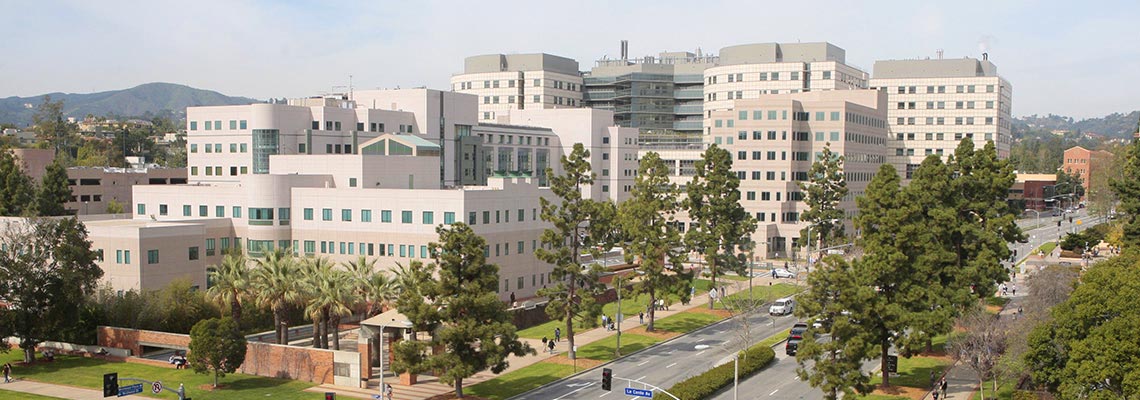History

In 1947, Dr. Stafford Warren was appointed the founding Dean of the UCLA School of Medicine. He dreamed of creating a “Langley Porter of the South” after the legendary Psychiatry Clinic in San Francisco based at the UCSF School of Medicine. He appointed Horace Magoun, Chair of Anatomy of the new medical school. Dr. Magoun dreamed of creating a West Coast Center for Neuroscience. Norman Brill was recruited from Georgetown in 1953 to become the founding chair of the Psychiatry Department at the new UCLA School of Medicine. He recruited a stellar faculty including James Marsh, Ivan Mensh, Alex Rosen, and Charles Tidd. Soon afterwards the California Legislature made an $8 million dollar investment in the creation of the Neuropsychiatric Institute, a facility for neuropsychiatric research, education, and clinical care. Construction of the building began 1958, and the first patient was admitted in 1961. The Brain Research Institute building, dedicated to neuroscience research and education, was also completed in 1961. The two buildings together constituted a powerful West Coast complex for research, education, and clinical care in neurology, neurosurgery, neuroscience and psychiatry. Dr. George Tarjan was soon recruited to the staff as a director of the division of mental retardation. Dr. Tarjan was a powerful force in addressing the needs of the developmentally disabled (formerly referred to as mentally retarded) and organized the Mental Retardation Research Center, the first research unit at UCLA.

John French became the first director of the Brain Research Institute (BRI) in 1959 and built it into a formidable research and education institute. In 1978, the Jerry Lewis Neuromuscular Research Center opened directly adjacent to the BRI. In 1973, California State Department of Mental Hygiene transferred the Neuropsychiatric Institute resources to the University of California, and the institute formally became part of the UCLA Health Sciences Center.
In 1969, Dr. Louis J. West (“Jolly”) was recruited from the University of Oklahoma to become chair of this young and growing department. Dr. West’s vision of psychiatry was broad, and the department’s name became “Psychiatry and Biobehavioral Sciences.” Dr. West recruited outstanding faculty members from around the world with expertise in basic science, social science, neurobiology, anthropology and numerous other disciplines. Dr. West was renowned for his expertise on cults and the psychological damage they can cause, as well as his expert testimony in the Patricia Hearst trial and his famous experiment administering LSD to Tusko the elephant at the Oklahoma Zoo.
Between 1989 and 1991, Dr. Daniel X. Freedman was Interim Chair of the Department. The department then continued to grow in stature and reputation under the leadership of Dr. Gary Tischler from 1991 to 1995.
Dr. Peter Whybrow served as chair between 1997 and 2020. During Dr. Whybrow’s tenure, a number of additional expansions occurred. A new building for neuroscience and genetics research, the Gonda Goldschmied building, was completed in 1998, and the Neuroscience Research building was completed in 2004. In 2007, the Resnick Neuropsychiatric Hospital moved into new facilities at the Ronald Reagan Medical Center, again raising the standards of excellence in patient care and education. More than a dozen endowed chairs were established to recruit and fund outstanding faculty members.
The UCLA Department of Psychiatry, the Semel Neuropsychiatric Institute, and the Resnick Neuropsychiatric Hospital continue to grow, develop and improve within the collegial and multidisciplinary atmosphere of the University of California, Los Angeles. The Department of Psychiatry has drawn more federal, foundation, and private competitive research funding than any other neuropsychiatric institute in the country — approximately $170 million per year. This support has led to UCLA becoming one of the nation’s leading academic training grounds for clinical and research psychiatrists and neuroscientists, and it is exemplified by the establishment of dozens of research centers and a roster of more than 150 full time faculty members.
Dr. Helena Hansen, an M.D.–Ph.D. psychiatrist-anthropologist, is the Interim Chair of the Department of Psychiatry and Biobehavioral Sciences, interim director of the UCLA Semel Institute for Neuroscience and Human Behavior at the David Geffen School of Medicine (DGSOM) at UCLA, and interim physician-in-chief of the Resnick Neuropsychiatric. Dr. Hansen is professor of psychiatry and co-chair of Research Theme in Translational Social Science and Health Equity at DGSOM, as well as associate director of UCLA’s Center for Social Medicine. She has published widely in clinical and social science journals ranging from JAMA and NEJM to Social Science and Medicine and Medical Anthropology, on faith healing of addiction in Puerto Rico, psychiatric disability under welfare reform, opioids and race, ethnic marketing of pharmaceuticals, and structural competency.
In 2026, the Resnick Neuropsychiatric Hospital will move from its current location in Westwood to a new location in the Mid-Wilshire neighborhood about six miles east of the university’s main campus. The redesigned structure will be a world-class neuropsychiatric hospital and will include comprehensive behavioral health care services for adult, geriatric, pediatric, and adolescent patients as well as a dedicated area for crisis stabilization services. Learn more about the upcoming Mid-Wilshire hospital at this webpage!
